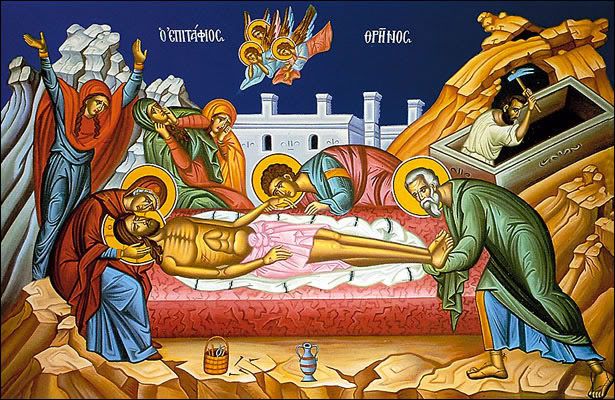
The last Orthodox service to arise was Passia (Greek for "suffering"), and it was compiled in the mid-17th century by the Kievan Metropolitan Peter (Mogila), the developer of many liturgical forms. At first, passias were served widespread in the southern regions of Russia, but by the 20th century they were being served throughout.
The service of Passia occurs four times in the year (according to the number of evangelists): on the second, third, fourth, and fifth Sunday of Great Lent, in the evening. From its title it is clear that these services remember the salutary sufferings of the Lord Jesus Christ. A Gospel reading related to them is read at each Passia: in the first, the 26th and 27th chapters of Matthew, in the second, the 14th and 15th of Mark, in the third, the 22nd and 23rd chapters of Luke, in the fourth, the 18th and 19th of John. According to tradition, the praying stand with lit candles in hand during the Gospel readings.
Besides this, we hear several touching chants from the services of Great and Holy Friday — the day of the Lord’s physical death. Thus, we hear the stichera "Come and worship Joseph eternally remembered…," which is sung during the kissing of Christ’s Shroud; before the reading of the Gospel we hear the prokimen, "They parted My garments among them, and upon My vesture did they cast lots…" These and other prayers carry us to Golgotha, again and again reminding us of the final goal of Lent — co-crucifixion with Christ.
During the Passia a sermon containing a lesson about Expiation is necessarily read. The early form of this service did not stipulate any parts, but the people’s piety added, to the Gospel and sermon, the akathist to Christ’s Cross or the Lord’s Passion, which is usually sung not only by the choir, but by all present. It is not surprising that Russian Orthodox Christians so love the Passia.
True, in certain circles the opinion exists that the Passia is of Catholic origin. Some find a similarity to the Catholic masses of Bach for the Passion week (the well-known "Passions of Matthew," "Passions of John"). This opinion is unfounded. On the contrary, the Metropolitan Peter compiled the order in contrast to the pomp of the Catholic services, because of which many adherents of magnificence accepted the Unia (the union with the Roman-Catholic faith). The spirit of passia is completely Orthodox: the incidental similarity to Catholic services in form is dissolved by the deep spiritual and moral content.
OFFSITE: Beginning Orthodoxy, Part 2 - The original article.
OFFSITE: Uncut Mountain Supply - See the icon used on this page for sale.